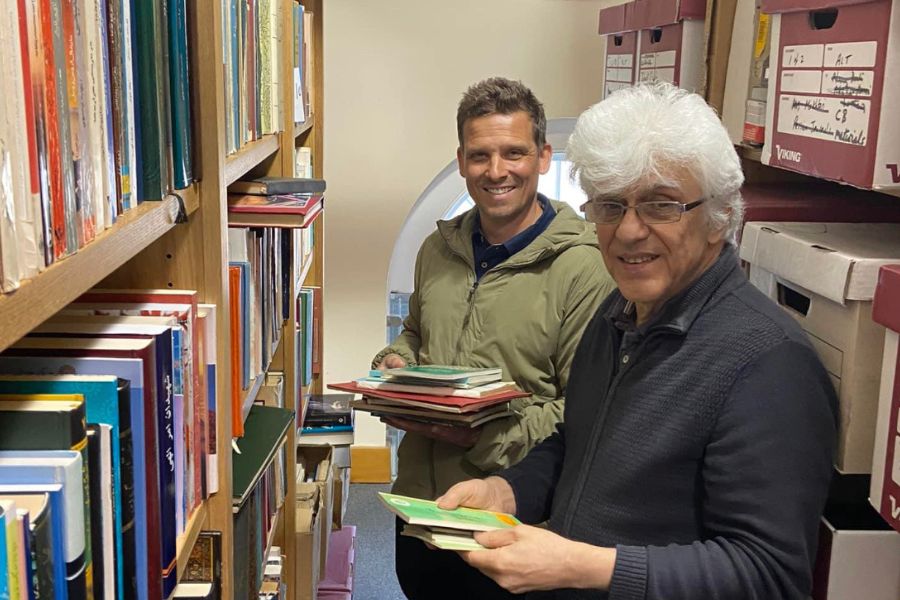Professor Zackery Heern Explores the Global Impact of Baha'u'llah's Writings in New Research Project

Heern conducting research
Elisabeth Curtis and Zackery Heern
July 11, 2023
Zackery Heern, Professor in the Department of History, and Associate Dean for the College of Arts and Letters, shares his experience conducting research in Haifa, Israel, and England.
The goal for this trip was to start a new research project on the writings of Baha'u'llah, who is the founder of the Baha'i faith, which began in 19th century Iran and has since emerged as a new global religion.
During my recent trip to Israel, and England, I began a new research project that delved into the writings of Baha'u'llah, the founder of the Baha'i faith. Originating in 19th century Iran, the Baha'i faith has since evolved into a global religion, with its world center located in Haifa, where the world’s largest collection of Baha’u’llah’s manuscripts is housed, which amounts to some 20,000 documents, most of which are not available to the public It was here that Baha'u'llah and his followers were exiled, and today, Haifa serves as a significant pilgrimage site for Baha'is worldwide. The sacred shrines of Baha'u'llah and the Bab, his predecessor, are also in Haifa and nearby Akka, attracting devout followers who seek spiritual enlightenment and solace.
In London, I made a visit to the Afnan library, a treasure trove of Baha'i manuscripts and documents, with an extensive archive dedicated to the religion. Here, I had unrestricted access to literature on Baha'u'llah's teachings. In Haifa I also met with international scholars who are also researching Baha'u'llah's writings.
Among the works of Baha'u'llah are letters addressed to individuals , including kings and rulers from the 19th century. Many of Baha'u'llah's works have been published in Arabic and Persian, and efforts have been made to translate them into hundreds of languages, thereby fostering a global understanding and appreciation of his religion.
Through my research, I gained a deeper appreciation for the enduring legacy of Baha'u'llah, whose writings lay out a vision for global unity, social justice, and spiritual transformation. In the coming months and years, I look forward to writing a new manuscript that analyzes Baha’u’llah’s writings in the contexts of the 19th century Middle East and Islam. Such a study will surely add to our understanding of 19th century world history and will inform the way that I teach students to engage with historical research and diverse topics of inquiry.

